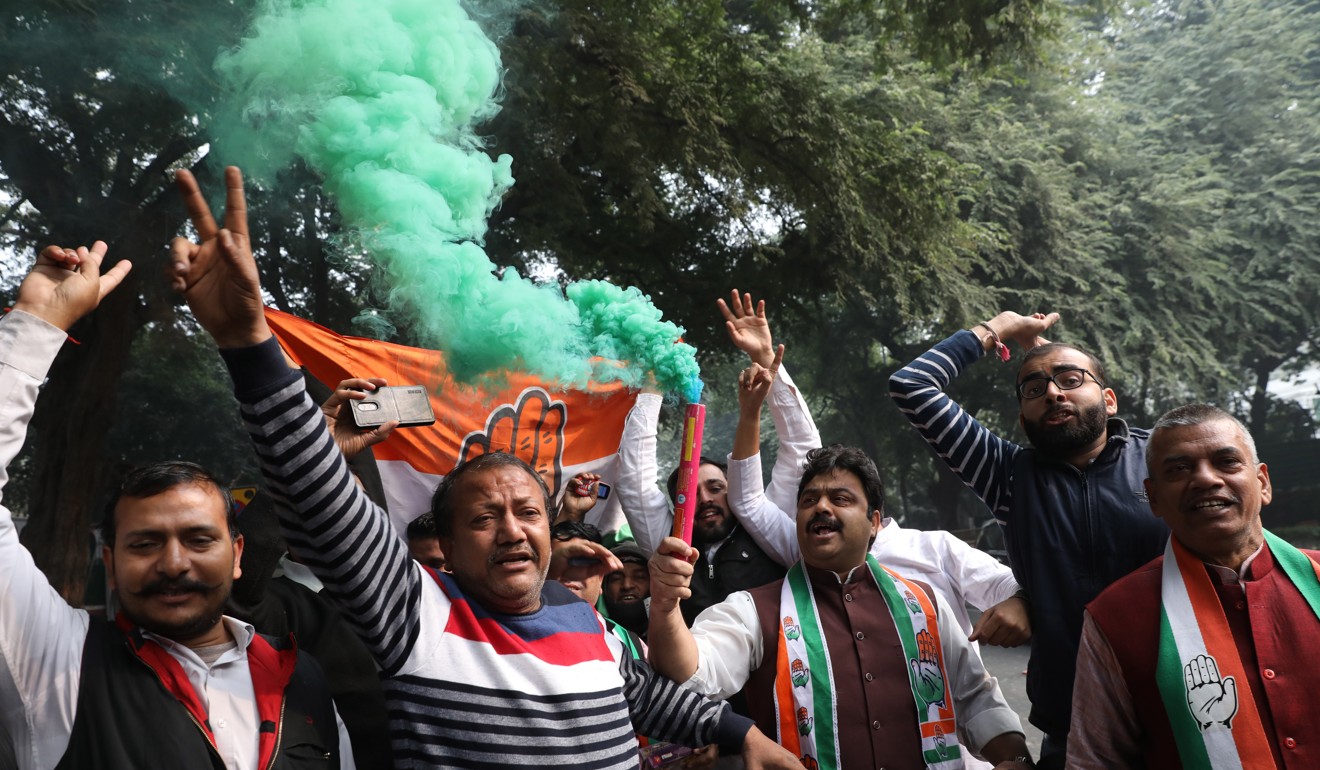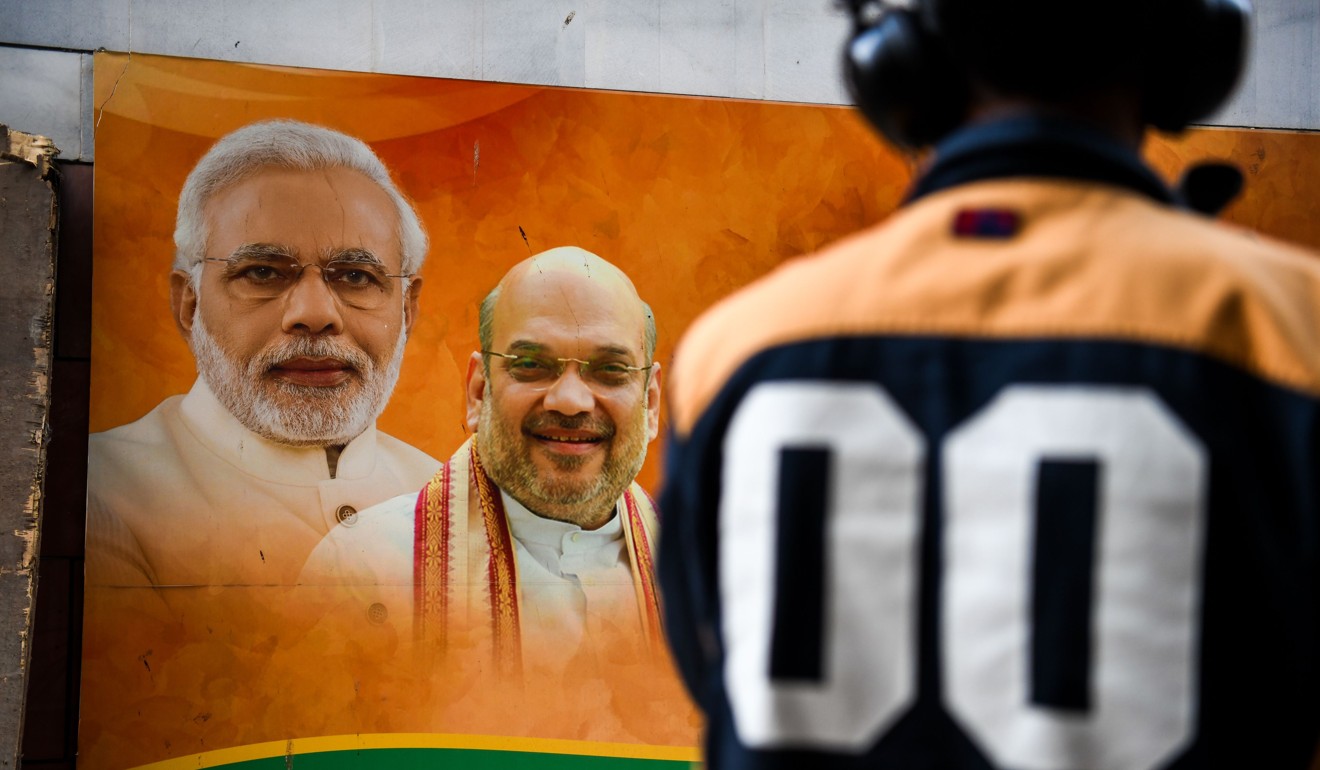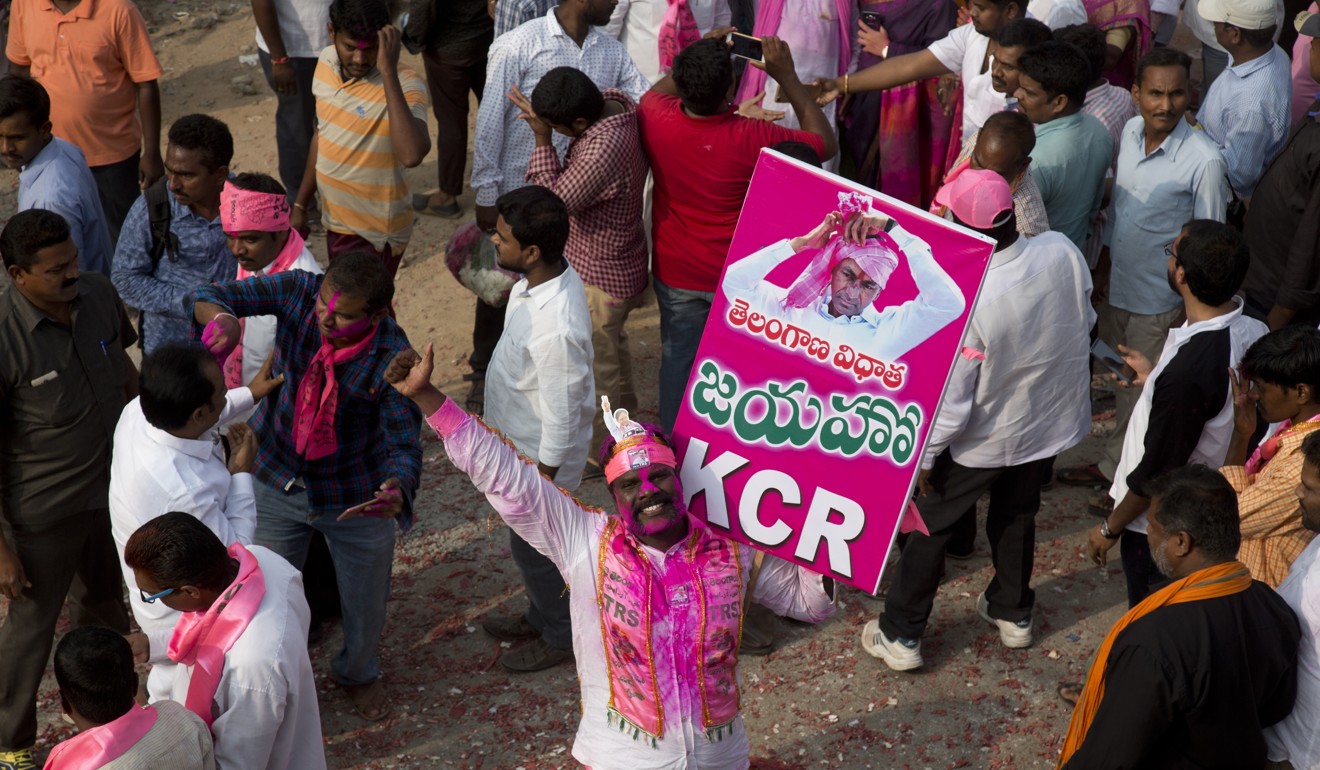
Indian leader Narendra Modi’s ruling BJP suffers major setback in state election battle
- The opposition Indian National Congress has won control in Rajasthan and Chhattisgarh with former stronghold Madhya Pradesh too close to call
Tuesday’s results have given a real boost to the Indian National Congress as it battles for supremacy against Prime Minister Narendra Modi’s ruling Bharatiya Janata Party (BJP) in the country’s state elections.
Congress can now look forward to forming governments in the former BJP domains of Rajasthan and Chhattisgarh, with Madhya Pradesh too close to call at the time of publication.
In Rajasthan, where Congress wrested control from incumbent Vasundhara Raje, identity politics have played a decisive role, according to political analyst Sajjan Singh.
“Apart from the dominant Rajput caste being anti-BJP in these elections, the Gujjar caste put their weight behind the young Congress leader Sachin Pilot,” he said.

Singh attributes Congress’s victory in Chhattisgarh to the tribal population’s disillusionment with the government.
“In Chhattisgarh, the tribals feel abandoned,” Singh said. “There is a new generation of tribals who are not satisfied with just populist, minimalist policies of providing rations at subsidised rates. They want jobs and development. They may be at the periphery of the society but they are also an aspirational class.”
Discontent among rural populations has been a major issue in this year’s elections, according to analysts, with farmers badly affected by low crop prices this summer as well as the 2016 overnight scrapping of certain high-denomination banknotes.
How the humble onion could determine India’s elections
“Rajasthan, Chhattisgarh and Madhya Pradesh are predominantly rural states and the agrarian discontent is very evident. Demonetisation also led to this situation since all rural markets and farmers transact in cash,” said Ajay Gudavarthy, associate professor of political science at Jawaharlal Nehru University.
Early results in Madhya Pradesh, one of the country’s most populous states, put Congress well ahead, but the BJP has been making a later comeback. It is still unclear which party will form the state’s next government.

Madhya Pradesh was formerly a BJP stronghold but has suffered from falling crop prices and loan defaults in recent years. Six farmers were killed when police opened fire on protesters in the state last year.
In Telangana, India’s youngest state after being split from Andhra Pradesh in 2014, the Telangana Rashtra Samithi has won by a landslide with chief minister K. Chandrasekhar Rao comfortably retaining his seat.
In the northeastern state of Mizoram, meanwhile, the opposition Mizo National Front has won 26 seats and is set to form a government, defeating the incumbent Congress.
Analysts have been keenly watching the polls to gauge what the reaction of ordinary Indian voters will be to rising prices, unemployment, a general lack of development and the use of identity politics. The results are sure to affect next year’s general elections.
Thousands of farmers march on India’s capital demanding minimum prices for crops
“Hindutva [a predominant form of Hindu nationalism] can only become a viable project if there is some development happening too,” Gudavarthy said. BJP thinks Hindutva can act as an alternative to development. It has no third alternative. Now what will be [its] agenda in 2019?”
The wave of support that Modi enjoyed in 2014 has also taken a hit, he said.

“The wave was based on an aspirational narrative that the BJP built because people were looking for a change. Congress itself contributed to that wave. But now Modi’s image – that of a man who delivers – has taken a beating.”
Ashwini Deshpande, a professor of economics at the Delhi School of Economics, called the results a “wake up call” for both the BJP and Congress.
“These are sobering results for the ruling party. It is a message that sectarian politics and mobilising one community against the other is not a guarantee at all if they don’t deliver at other fronts. The Congress’s focus on soft-Hindutva too was a short-sighted and misplaced strategy,” she said.

